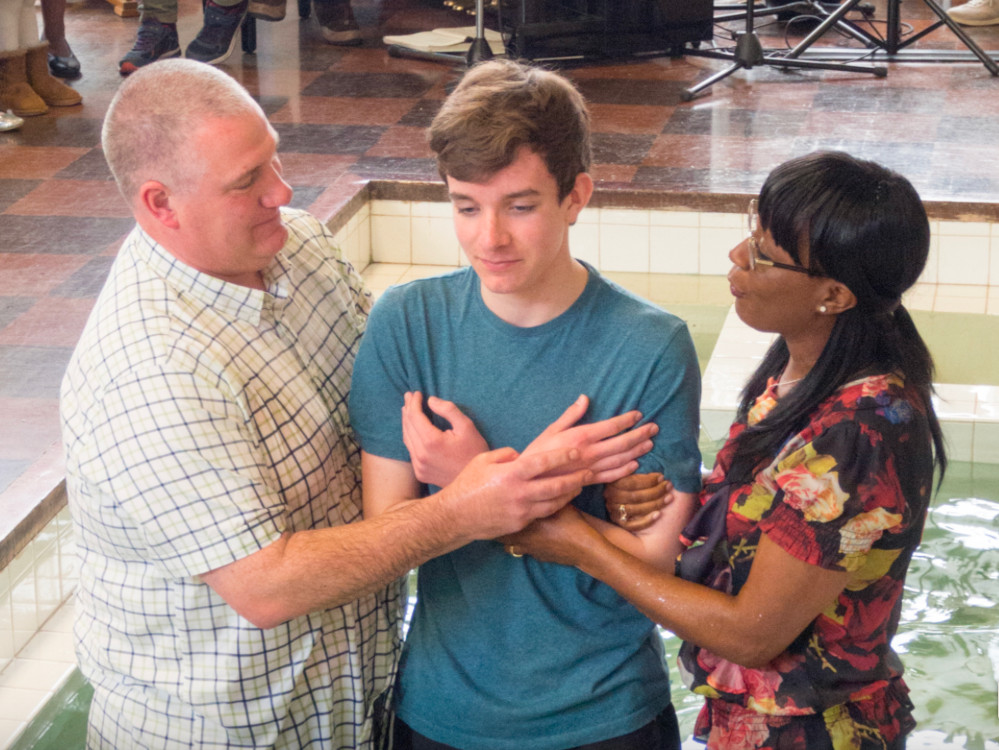An Obadiah Slope Column
(For newbies, Obadiah Slope is the “odious evangelical” in Anthony Trollope’s “Barchester” novels which satirised church leaders. He’s come back to haunt you.)
###
Jesus gets verified on Twitter. The New York Post reveals that Jesus has a blue tick on Twitter. But a certain Islamic prophet has had his account suspended according to the always worth reading Archbishop Cranmer blog. His grace also says has not received a blue tick, because he is dead. This might mean that Twitter’s theology is better than any of us thought. You get a blue tick even if you are dead only if you have been reliably resurrected. (And of course, Obadiah Slope never lived)
###
Mirror image. A couple of weeks ago The Other Cheek featured the final outcome of a long saga that ended with an ending – when Hedley Fihaki was ousted as a minister of the Uniting Church. As far as Obadiah can determine, it was for being an extremely outspoken conservative, especially on the issue of same-sex marriage.
This week The Other Cheek chronicled the outcome of another long church process also with an expulsion outcome, the decision of the NSW/ACT Baptists to take a strong conservative stand of not having same-sex marriage and having ministers and churches affirm that position every five years. And once again we featured the perspective of an ejected – and dejected – minister, Will Small a progressive Baptist.
There’s a lot of pain in these decisions, and Obadiah thinks it is worth recording.
###
Baptists explained: To understand what happened on the weekend, with the NSW Baptists voting to double down on marriage being for a man and a woman, and require churches and ministers to sign on to that, Obadiah believes it helps to remember there are not just two groups in this debate.
There are four. Using a Typology that’s been used in the United Methodist Church, a denomination that’s currently becoming less United as thousands of conservative churches vote to leave, we have progressives and conservatives, but with each side divided into “compatibilists” and “non-compatibilists”.
Starting with the most conservative group, the Baptists have
- Conservative in-compatibilists – people against same-sex marriage in the church, who want the church to only have preachers with this view. That turned out to be 60 per cent of the Baptist Assembly.
- Conservative compatibilists – typically say “I am evangelical, personally conservative on marriage, but happy to have some local churches disagree with me in our fellowship. A number of Baptist b loggers put that line.
- Progressive compatibilists – Progressive on gay marriage, but say they are happy to have conservatives in the fellowship but want to be a local affirming church.
- Progressive In-compatibilists – not many if any in the NSW/ACT Baptists.
People shift between these categories. In some denominations the majority shift over time. An example is The Episcopal Church (Anglicans in the US and some other countries) which appears to be moving from c) to d) at present. A conservative in-compatibilist Bishop is unlikely to be nominated in The Episcopal Church as approval for a new Bishop are needed from a majority of the 110 dioceses (regions) most of which are progressive. Even a Conservative compatibilist bishop is unlikely to make it.
Part of the driver for change is that once a number of LGBTQIA ministers are in a denomination, there will be a push for the central leadership to accept everyone. Inevitably once this happens the conservative voice is reduced over time. In NSW/ACT the conservative Baptists decided to get ahead of this trend.
The NSW Baptists have now decided they want to be a conservative in-compatibilist church, which by definition means all ministers and churches have to sign on to opposing same-sex marriage. The arguments for a conservative-compatibilist position that would have allowed dissenters to stay in the Baptist Association were rejected.
The minority in the Baptist Assembly argued that local churches in the Baptist tradition have had a lot of local autonomy. The majority saw being against same-sex marriage as a core part of what they want the baptist churches to be.
Queensland Baptists are conservative in-compatibilists. One description of Aussie Baptists is that the closer you get to the equator, the more conservative they get.
The Baptist Union of Victoria most likely has a de facto conservative compatibilist culture, with a mix of viewpoints. They have several recognised pastors who identify as LGBTQIA.
Australia’s Conservative Christianity:
Unlike the US which has a number of progressive denominations, Australia has only one major one, the Uniting Church, which fits any progressive camp. At present, at least officially the Uniting Church fits in the progressive-compatibilist group – although some recently departed conservative ministers can point to some in-compatibilist activity by that church.
All the evangelicals who remained in the UCA after 2003 were compatibilists to some extent, even if unhappy, although they retained conservative theology. The recent disputes involve those wanting to speak out strongly against progressive theology. (2003 was the year the UCA effectively accepted LGBTQIA clergy.)
On the other hand, Australia’s Catholics, Presbyterians, Pentecostals, Seventh Day Adventists are joined by arguably a majority of Anglicans, and a majority of Baptists, on the record as living in the conservative in-compatibilist group. The significance of the NSW/ACT Baptist vote is that it cements the conservative majority in place.

